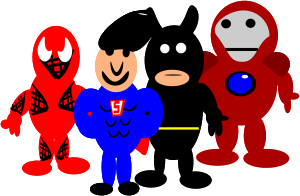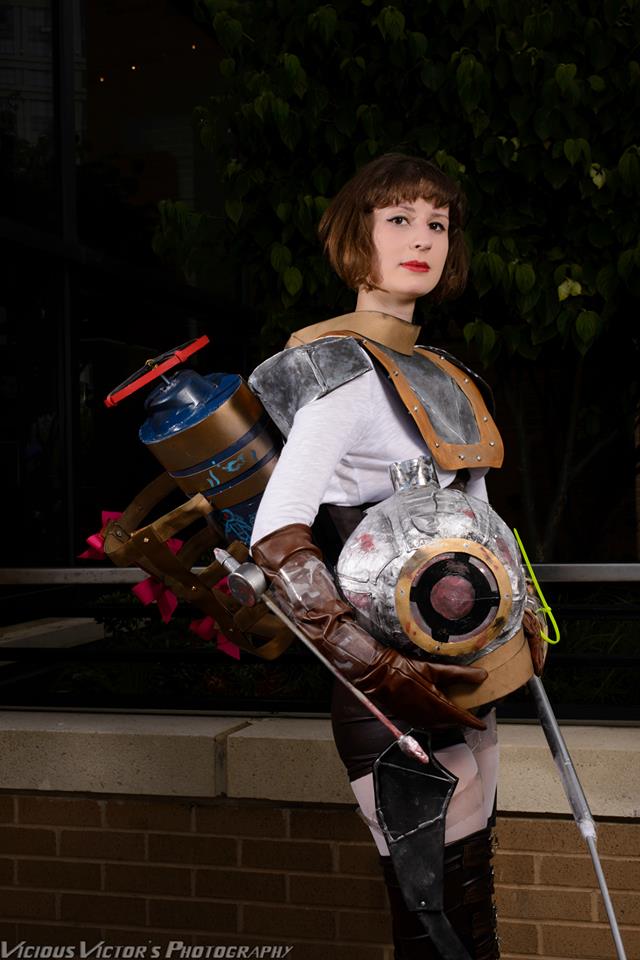These days, there are fandoms for everything. If something exists, there’s probably a fandom following, whether it’s a cult following, or more niche. Geek culture itself, is a fandom, really. Then, there are many, many fandom branches. Because there are so many, it may be hard to find a place to fit in well and know just what the hell is going on.
I consider myself somewhat of a geek culture veteran, even though I really only got into it at the end of 2011. However, I have seen enough of the fandom life, both good and bad, to write with authority on it. I’m starting here, and will be writing a (hopefully) regular piece, each week, on a different facet, issue, quirk, etc. of fandoms. I will focus on fandom life, a whole, and also some specific fandoms.
First, let’s talk about finding the right fandom for oneself. I’m writing this on the premise that one wouldn’t be looking for a fandom like one looks for an item in the supermarket. Most of the time, we are prompted to learn more or delve deeper into a fandom because of something we saw, something we heard, or in most cases, because we have a friend whom is into the thing that has piqued our interest. So, what do we do next? It can be easy to get lost or too caught up in a fandom (it happens to the best of us), so here are some things to keep in mind, when entering “Fandom Land.”
1. You don’t have to learn every little thing there is to know about the fandom right off the bat.
This mostly happens with TV shows, it seems. With Netflix and Hulu Plus making it more convenient, we are more likely to binge watch an entire TV series in the span of one to two days. My current record is still five and a half seasons of The Office in five and a half days. That’s fine, on occasion.
However, as I’ve witnessed in some fandoms–especially anime, toku, Supernatural, and the Internet reviewing fandoms, there’s a lot of pressure to learn everything right off the bat. I delved gently into some anime, back last year, by watching the really messed up show, Elfen Lied. When my otaku friends found out, they were hurling names of so many other anime shows at me, in an effort to “catch me up.”
I eventually had to tell them to chill out, as I had a life outside of that particular fandom and fandoms in general. Eventually, I guested on a Toonami-watching live stream, twice, and then watched several episodes of Attack on Titan. That was the extent. Some of you will want to delve deeper than I did, and that’s fine. Just keep in mind that it’s okay to say “no” or “slow it down” when those more immersed in the fandom you’re interested in are hurling a ton of information at you.
If you don’t, you may go insane, end up resenting the more knowledgeable fans, and say “forget it” to that fandom. Find a fandom that you have time fore, and/or can learn more about, in moderation.
2. You are allowed to talk to and be friends with outside of a fandom that you’re just getting into, and/or are passionate about.
I know that sounds simple enough, but sometimes, it’s easier said and done. I’ll deal more with fandom drama in future articles, but this one is important right now, too. When you are just getting into a fandom, and you follow the advice from above, there may be some important things that slip through the cracks.
For whatever reason, there are some fandoms that are well-known for disliking and hating each other. In my own fandoms, I have seen this with the Yankees-Red Sox rivalry, WWE vs. TNA pro wrestling, Attitude Era vs. PG Era WWE pro wrestling, Trekkies vs. Star Wars nerds, classic vs. new generation Whovians, DC vs. Marvel fans, and the list goes on.
Sometimes, you may get caught up in the allegiance aspect of fandoms, but don’t let it control your life. Not every fan in fandom rivalries has to be a jackass and shut out the fans from “the other side.” In fact, these fandoms don’t even have to be mutually exclusive. Again, I will discuss more about fandom drama at a later time, but don’t let fandom people tell you that you can’t be friends with people from a rival fandom. That’s controlling and manipulative, and no one needs or deserves that in their lives.
You can be friends with whomever you want. Heck, my best friend loves Spider-Man: Turn Off the Dark, and one of my boyfriends loves Spider-Man 3, but they’re still two people that I love more than anything.
3. You need to realize that there are bullies.
I’m not just talking about random trolls from rival fandoms, or people who just generally don’t follow Wheaton’s Law of “don’t be a dick.” There are bullies within the fandom too, and you need to learn how to deal with them or avoid them altogether.
The biggest fandom bullies are usually the ones who are the “it” fans of each fandom. They tend to think they know all the things about their fandom, and speak down to “underlings” with authority about it. They make others feel inferior, and that’s not okay. The point of a fandom is to enjoy the fandom, often with others. There shouldn’t be what seems like a hierarchy. So, try to befriend those who have a healthy appreciation of the fandom, and don’t give in to the bullies who are obsessed and try to ruin it.
4. Speaking of obsessed, you should not be.
This is where fandoms are getting a bad reputation. More and more, the fans are rapidly becoming bat shit insane. I will discuss white knighting, inappropriateness, and stalking another time, but for now, I want to touch on this point briefly.
It is okay to be enthusiastic about the fandom that you’re interested in, but you will see the kinds of people that you should not want to become. I’m talking about the people who pry (or try to) into the personal lives of the people whom represent their fandom, everything they talk about having a reference to the fandom in it, things that they cannot naturally make about the fandom, they will stretch, and pretend they can anyway, don’t talk to people unless it’s about their fandom, will stop talking to someone if they change the subject away from their fandom, and other things like that.
I will elaborate, more, in an article about this, specifically. But seriously, don’t become someone like these people. It looks bad. And if you engage in friendship with people like this… well, you know what they say about birds of a feather. I’m not saying that you will absolutely become like them, but I have seen enough of a hive mind happen in the Internet reviewing community and the Internet wrestling community to know that it’s always a possibility.
5. Be respectful.
You may not always agree with everyone. I know I don’t. It’s easy to get carried away and spew hatred at someone for it, but try not to–even if the other person “starts” it. Admittedly, the latter part of that, is something that I am still working on myself.
Getting up in arms about silly stuff within a fandom is almost always futile. Calling fellow fans and trolls names and throwing around strings of expletives at them, accomplishes nothing. Plus, sometimes, you can change a person’s mind by being respectful and having a civil conversation. However, you can’t win them all. Sometimes, you have to have a Kenny Rogers approach: “You’ve got to know when to hold ’em, know when to fold ’em… know how to walk away.”
Don’t worry about always being right. Don’t get agitated. Just agree to disagree. Otherwise, those interactions have the propensity to turn into flame wars.
6. There’s no wrong way to express your fandom, unless you’re using it to actively harm others or break the law.
Don’t let others tell you how you can or cannot express your fandom. Cosplaying, wearing merch, writing fanfiction, creating artwork, composing music, etc. are all, pretty much healthy ways to uniquely express your appreciation of your fandom. Others may criticize you for it, but like with others starting in on you, with flame comments, don’t engage. Just do your thing.
7. Be all-inclusive.
Have you ever been criticized? If you’re breathing, then the answer is yes. In fact, I’d be willing to bet that each person reading this has also felt left out, at some point. It is important, in general, but especially in fandoms, to be inclusive of everyone, unless they are an absolute threat. I ran into this issue, with a former best friend of mine. He claimed that he supported the “Cosplay is for Everyone” movement, but then always criticized professional and competitive cosplayers. which I wrote about, here. How would that make you feel?
Ladies, I especially want to ask you–in the geek culture community, how many times have you been excluded or felt unwelcome, simply because you’re a female, and that comics, gaming, etc. is/are for guys? Think about that, the next time you actively shut others out of fandom communities, “because reasons.”
I’m pretty sure these are all the basics I wanted to cover, in this introduction. They’re basic guidelines, that will hopefully help navigate you through a new fandom, and more fandoms to come. As I said, I will be writing on specific fandom facets, (hopefully) regularly, from here on out. So, please keep checking back! Go forth, and may the geek force be with you!










